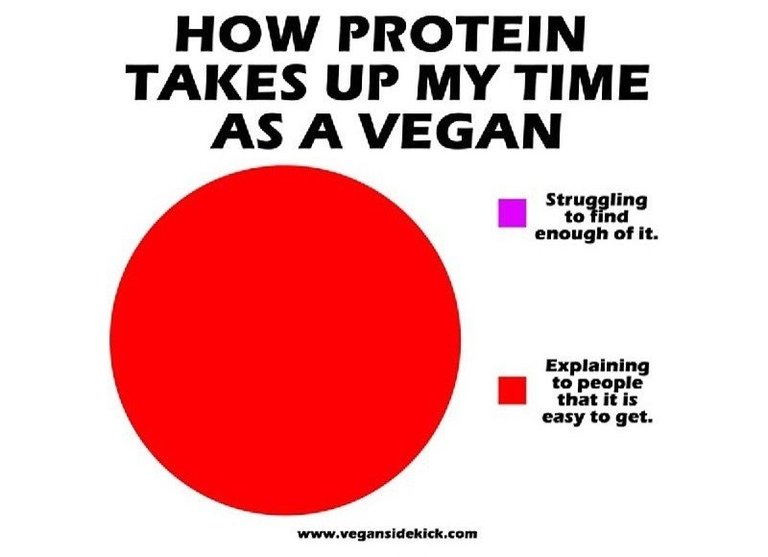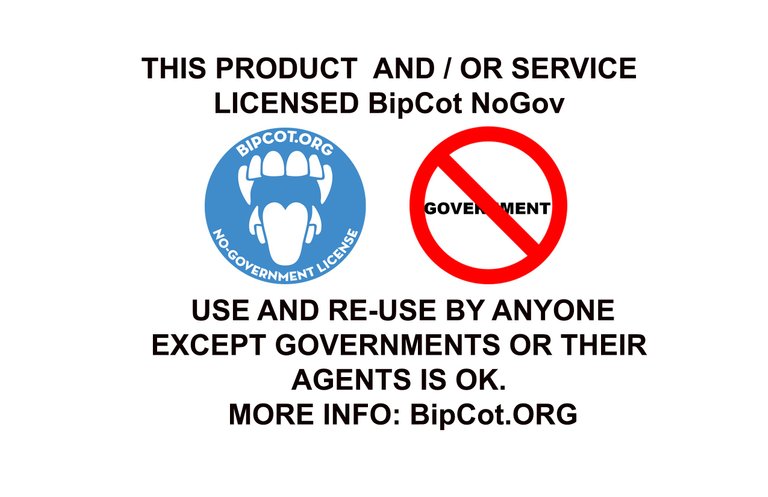Having been a vegan, and specifically a vegan chef & nutritional coach, for the last 5 years, I hear a LOT of ridiculous, non-factual claims & questions about diet. One of the biggest ones is around the idea of protein intake, "complete proteins", and people incorrectly thinking that it is hard for vegans to get enough protein.
Today, I want to break down a bit of this conversation on the most basic level. I'm not going to dive deep into the vegan vs dead animal diet, but focus on proteins & amino acids, how our body breaks them down and uses them, and a little history of the fallacious complete protein argument.
To start off, I will leave this one quote about veg diets, from Dr. John McDougall:
The reason it is important to correct this misinformation is that many people are afraid to follow healthful, pure vegetarian diets ― they worry about ‘incomplete proteins’ from plant sources. A vegetarian diet based on any single one or combination of these unprocessed starches (eg, rice, corn, potatoes, beans), with the addition of vegetables and fruits, supplies all the protein, amino acids, essential fats, minerals, and vitamins (with the exception of vitamin B12) necessary for excellent health. To wrongly suggest that people need to eat animal protein for nutrients will encourage them to add foods that are known to contribute to heart disease, diabetes, obesity, and many forms of cancer, to name just a few common problems.

Image Source
So, what is protein?
Proteins are polymer chains made of amino acids linked together by peptide bonds. During human digestion, proteins are broken down in the stomach to smaller polypeptide chains via hydrochloric acid and protease actions. This is crucial for the absorption of the essential amino acids that cannot be biosynthesized by the body.
There are nine essential amino acids which humans must obtain from their diet in order to prevent protein-energy malnutrition and resulting death. They are phenylalanine, valine, threonine, tryptophan, methionine, leucine, isoleucine, lysine, and histidine.
The human body is made up largely of proteins (the second largest constituent after water), making up most of our muscle and many other tissues. Now, the mainstream understanding seems to be something like "eat lots of proteins, and they will become the tissues you need"... which is incorrect.
When we eat whole protein chains, our body has to break them down (as mentioned in the quote above)... Ever noticed how much energy it seems to take to digest dead animals? That is in part due to your body having to break down all those proteins into the amino acids it actually needs.
What are Amino Acids
Amino acids are organic compounds containing amine (-NH2) and carboxyl (-COOH) functional groups, along with a side chain (R group) specific to each amino acid.[1][2][3] The key elements of an amino acid are carbon (C), hydrogen (H), oxygen (O), and nitrogen (N), although other elements are found in the side chains of certain amino acids. About 500 naturally occurring amino acids are known (though only 20 appear in the genetic code) and can be classified in many ways.[4] They can be classified according to the core structural functional groups' locations as alpha- (α-), beta- (β-), gamma- (γ-) or delta- (δ-) amino acids; other categories relate to polarity, pH level, and side chain group type (aliphatic, acyclic, aromatic, containing hydroxyl or sulfur, etc.). In the form of proteins, amino acid residues form the second-largest component (water is the largest) of human muscles and other tissues.[5] Beyond their role as residues in proteins, amino acids participate in a number of processes such as neurotransmitter transport and biosynthesis.
Put simply, amino acids are some of the most important building blocks of the human body; they are depended upon for new tissues, brain function, and much more. There are 2 basic categories of amino acids: essential (which our bodies cannot synthesize), and non-essential (which our bodies synthesize using the essentials).
Many sources also refer to conditional essentials, amino acids which our body produces normally, but which can be lost due to stresses & environment. What this means is that stressors from the outside world also affect your dietary needs... who would've guessed? Here is that breakdown on Wikipedia.
Image Source

In the 1970s there was a fad started, which made the claim that humans need to eat complete proteins (foods containing all 9 essential amino acids) for good health, though it has long since been debunked. Like many things now known to be factually untrue (like the US being attacked at the Gulf of Tonkin), this claim still floats around and screws up many people's understandings of a healthy diet.
In reality, as long as you are getting the essential amino acids every day, there is no need for them to all come in any given meal. A related fact that has been shown clinically, but the mainstream still argues against, is that if you are eating enough calories and have a balanced, plant-based, whole-food diet, you are pretty much guaranteed to get (more than) the amino acids & "proteins" that you need.
The Essentials & Where to Get Them
Histidine
Benefits:
- Helps produce red & white blood cells
- Helps transport neurotransmitters
Sources:
- Grains: Buckwheat, Rice, Rye, Wheat
- Seaweed, Cantaloupe, Potatoes, Cauliflower, Corn
- Most Beans & Legumes
- Seeds: Hemp, Chia
Isoleucine
Benefits:
- Helps produce energy & Hemoglobin
- Assists in Nitrogen growth in cells, especially kids
Sources:
- Grains: Oats, Quinoa, Rice, Rye
- Seeds & Nuts: Almonds, Cashew, Chia, Hemp, Pumpkin, Sesame, Sunflower
- Fruits: Apples, Blueberries, Cranberries, Kiwis, Pumpkin
- Veggies: Cabbage & Spinach
- Beans & Lentils
Leucine
Benefits:
- One of the best amino acids for stimulating muscle growth
- Helps regulate blood sugar through Insulin moderation
- Helps prevent & treat depression
Sources:
- Veggies: Peas, Leafy Greens, Seaweed, Turnip Greens, Watercress
- Fruits: Apples, Avocado, Bananas, Blueberries, Dates, Figs, Olives, Pumpkin, Raisins
- Seeds & Nuts: Chia, Hemp, Sesame, Sunflower
Lysine
Benefits:
- Used to produce Carnitine, needed to convert fatty acids into an energy source
- Aids in Collagen production
- Helps absorb Calcium
Sources:
- Beans, Chickpeas, Lentils
- Seeds & Nuts: Almond, Cashew, Chia, Hemp
- Veggies: Parsley, Spirulina, Watercress
- Avocadoes
Methionine
Benefits:
- Is the only amino acid containing sulfur, needed to form cartilage
- Aids in muscle growth and creation of Creatine
Sources:
- Seeds & Nuts: Brazil Nut, Cacao, Chia, Hemp, Sunflower
- Grains: Oats, Rice, Wheat
- Fruits: Figs, Raisins
- Veggies: Seaweed & Onion
- Most Beans & Legumes
Phenylalanine
Benefits:
- Converts into Tyrosine (needed to synthesize proteins, brain chemicals, and hormones)
- Increases the lifespan of Endorphins (pain relieving chemicals)
- Endorphin deficiency is tied to Alcohol, Cannabis, Nicotine, and Opiate addictions
Sources:
- Fruits: Avocado, Berries, Figs, Olives, Pumpkin, Raisins
- Most Beans, Nuts, and Seeds
- Veggies: Leafy Greens, Seaweeds
- Grains: Quinoa & Rice
Threonine
Benefits:
- Supports healthy immune, nervous, cardiovascular systems
- Helps balance protein levels
- Produces Glycine & Serine (good for bones, skin, hair, and nails)
- Helps with fatty acid digestion
Sources:
- Veggies: Leafy Greens, Watercress, Spirulina
- Fruits: Avocado, Figs, Raisins, Pumpkin
- Seeds & Nuts: Almond, Chia, Hemp, Sesame, Sunflower
- Grains: Quinoa, Wheat
Tryptophan
Benefits:
- Necessary for a healthy nervous system (sleep, neurotransmitter function)
- Converted in the brain to Serotonin (the happiness chemical)
- Serotonin deficiency is tied to Alcohol, Cannabis, Nicotine, and Sugar addictions
Sources:
- Grains & Beans: Chickpeas, Lentils, Oats, Quinoa
- Seeds: Hemp, Chia
- Fruits: Apples, Avocado, Bananas, Figs, Oranges, Pumpkin, Winter Squashes
- Veggies: Asparagus, Beets, Carrots, Celery, Leafy Greens, Onions, Parsley, Peas, Peppers, Seaweed, Sweet Potatoes, Watercress
Valine
Benefits:
- Necessary for muscle growth, recovery, and maintenance
Sources:
- Most Beans, Legumes, Whole & Sprouted Grains
- Veggies: Spinach, Broccoli
- Seeds: Sesame, Hemp, Chia seeds
- Fruits: Apples, Apricots, Avocado, Blueberries, Cranberries, Figs,
Image Source

Conclusion
The goal of this piece was not to try to convince you that you shouldn't eat proteins or anything like that (many of the EAA sources above are quite high in protein), but rather to shift the conversation away from protein and onto something much more focused, and honestly more relevant. Not only is daily in-take of enough of the 9 Essential Amino Acids necessary for basic health, but our physical & psychology symptoms can often be traced back to (or at least intensified by) deficiencies in Amino Acids & chemicals they allow our bodies to create.
In the realm of addiction alone, mindful consumption of amino acids has powerful, life-altering effects. Check out these articles to go down that rabbit hole: 1, 2, 3
Further Reading & Sources
- Vegan Health: Proteins & Amino Acids
- American Heart Association: Plant Foods Have a Complete Amino Acid Composition
- National Academies Press: Dietary Reference Intakes for Energy, Carbohydrate, Fiber, Fat, Fatty Acids, Cholesterol, Protein, and Amino Acids
- OneGreenPlanet: Need Protein? Here are 9 Amino Acids Found Abundantly in Plants

If you enjoyed this, you may enjoy some of these highlights of my blog:



What do you think are good macro ratios to lose weight and maintain? I was cutting protein and increasing fat for a couple of weeks, saw some weight loss and after a while, just never felt full or craving protein constantly. I was having a green smoothie and some eggs and cheese for lunch. Perhaps my body is used to more protein the meat-form vs plant-form? I'm not sure.
Vegan anarchism for the win!
I eat meat because I like it, now as the years go by each time I feel less the need and the desire to eat meat, I suppose that one day the meat will no longer be seen as a staple food. Any way in my country is so expensive that we can only eat it from time to time
Preach bro.. long live Dr Sebi!
I went through a long period in my youth where my quest also led me to food investigation. I share your views for the most part and also understood by '85 what you're saying about amino acids. a living whole food diet is as good as it gets but I also have no problem with the paleo diet especially for those who hunt and gather their own foods.
As an old geezer I can say this topic doesn't hold my passions anymore although I did pick up superfood smoothie ingredients today.
Chia, hemp, tumeric, cbd oil, cocao, cocomut milk, almond milk, and i add fresh fruit and veges.
stay well kenny!
Great information given by your post . Good work great post. Keep posting these type of interesting posts.
Are you a nutritionist???
It looks like hemp seeds, avocado and lentils are reliable sources of most of these, though the overall takeaway for me is that one doesn't need to worry about this too much if they're eating diversity.
I'm slowly converting back to veganism after several years away from it. One of my primary worries are high lectins in the diet, which can wreak havoc on the body. It's this something you've looked into and have thoughts on?
I hope I don't sound rude. You have stated many scientific facts about Amino Acids that can be rather difficult for a regular like me to understand even though I tried to read through. My main concern about health is really about the need to slim down. I did hear some info about proteins related to slimming down in the past. Anyway, if I can try to maintain intake of 9 essential amino acids from plants and reduce intake of meat, can I slim down naturally without exercising? I am presently 45 years old so metabolism rate definitely has slowed down.
Mmm I'm gonna eat an avocado right now!
Extremely interesting science based article, thanks I learned alot
Congratulations on your work, really great.